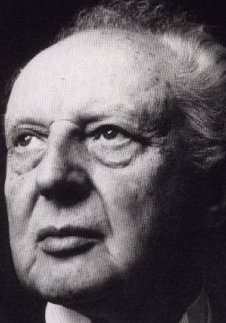Conductor worked his magic with broad reinterpretation
 STOKOWSKI - The Magician: Music of Bach, Beethoven, Liszt, Smetana, Brahms, Rimsky-Korsakov, Rachmaninoff, Villa-Lobos, Prokofiev, Shostakovich. Anna Moffo, soprano; London Symphony Orchestra, RCA Victor Symphony Orchestra, New Philharmonia Symphony Orchestra, American Symphony Orchestra, Members of the NBC Symphony Orchestra, Chicago Symphony Orchestra. Leopold Stokowski, conductor. RCA "Artists of the Century"; ADD stereo; 70931; 2 CDs.
STOKOWSKI - The Magician: Music of Bach, Beethoven, Liszt, Smetana, Brahms, Rimsky-Korsakov, Rachmaninoff, Villa-Lobos, Prokofiev, Shostakovich. Anna Moffo, soprano; London Symphony Orchestra, RCA Victor Symphony Orchestra, New Philharmonia Symphony Orchestra, American Symphony Orchestra, Members of the NBC Symphony Orchestra, Chicago Symphony Orchestra. Leopold Stokowski, conductor. RCA "Artists of the Century"; ADD stereo; 70931; 2 CDs. RCA bills Leopold Stokowski as "The Magician," and I suppose that that`s just about right.
The opening sentence of the notes that accompany these discs states: "Leopold Stokowski was a spectacular showman."
And I suppose that`s just about right, too.
But it would be a mistake to consider this conductor to have been simply a show-off practitioner of musical legerdemain.
Oh, I know. The way he displayed his hands as he conducted without baton, the white hair that flowed from his forehead over the back of his head, his often erratic seating of the orchestra, and especially the way he played the music, which sometimes was decidedly different from the way the composer wrote it: All these things marked him as anything but a traditional conductor of classical music.
The clue to the Stokowski state of mind is in the last item: the way he played the music. And here it must be understood that Stokowski considered himself to be a co-creator with the composer. He felt entirely justified in changing rhythms, dynamics and even instruments. But all this aside, Stokowski was a very great conductor in a time of very great conductors. One of the marvelous things he did do was to popularize great music. There was a time in the `30s and `40s when he was probably the most popular and most easily recognized symphony-orchestra conductor by the general public in America. Everybody who saw Walt Disney`s "Fantasia" knew who Leopold Stokowski was.
Every music library should include recordings by Stokowski. This two-disc set would be a good start. The recordings were made between 1954 and 1974, and the sound is good to excellent.
And there`s a bonus with this set: You get two CDs for the price of one.
HINDEMITH - Kammermusik No. 2, 3, 6 & 7. Berlin Philharmonic; Claudio Abbado, conductor. EMI Classics 56831.
Paul Hindemith`s Kammermusik (Chamber Music) is not for everybody. And even if you enjoy the more popular works of Hindemith, works that display his gift of melody and his superb orchestration, still, this disc may not be for you - unless you are willing to accept the composer writing in an entirely different form than the ones you are used to.
This is Hindemith`s idea of writing in the neoclassical form. This was popular at the time. Stravinsky was doing it most successfully. The notes with this disc point out that Stravinsky wrote "for a traditional audience, whereas Hindemith was writing as much for his players as his audience."
Kammermusik No. 2 is for 12 solo instruments and piano obbligato, with Lars Vogt on the piano; No. 3 for 10 solo instruments and obbligato cello, with George Faust on the cello; No. 6 for chamber orchestra and viola d`amore, with Wolfram Christ on the viola d`amore; No. 7 for chamber orchestra and organ, with Wayne Marshall on the organ.
With these recordings, Abbado completes the set of seven Kammermusik pieces, having recorded Nos. 1, 4 and 5 earlier, although it is not clear that Hindemith actually intended them to be a set. This is difficult music for both listener and performers. One must be willing to give it repeated hearings in order to glean a fuller appreciation of it.
It is especially good to have these recordings in the recorded literature. They make a welcome addition to Schwann`s OPUS, in which their listings are all but nonexistent.
Visit Copley News Service at www.copleynews.com.
(c) Copley News Service
advertisement

Related Articles
Author: King Durkee
Archives
Nathan Milstein first among equals
Musical mastery is in the details
Half century of classics sprout from modest seed
Hundred years warble: sounds of a century
A Vivaldi album for all seasons
Westminster lives on
15-work collection a tribute to compassion
Remastered recordings music to the ears
Grand band music
The elusive quality of superstars
Vault yields some forgotten gems
Remembering Rampal
Argerich is always awesome
Mahler - words and music
Liszt`s music at its best
More Articles






